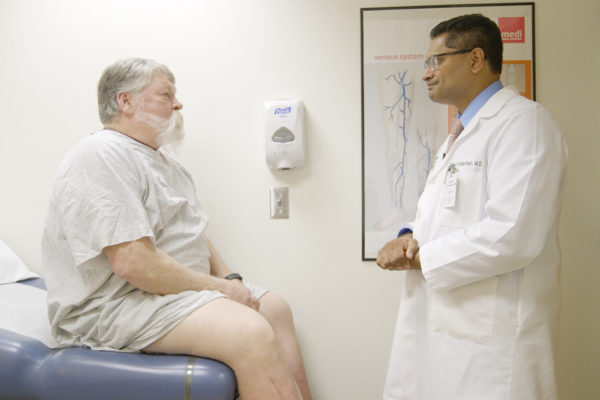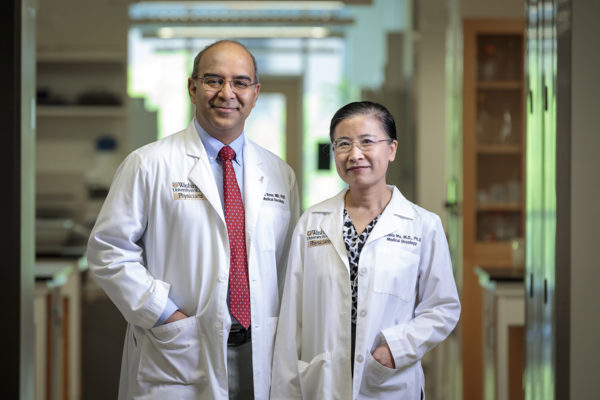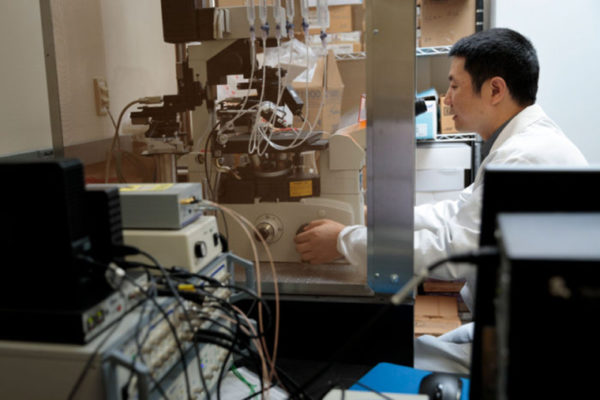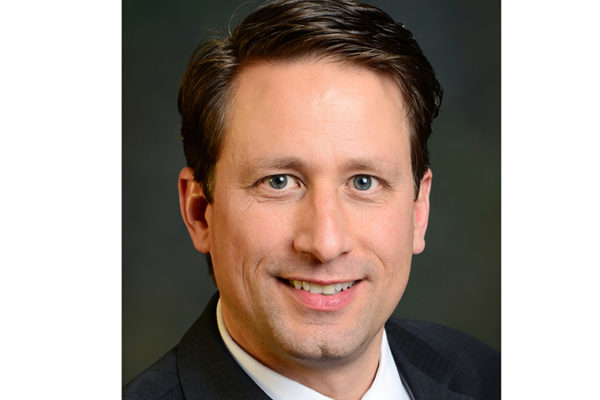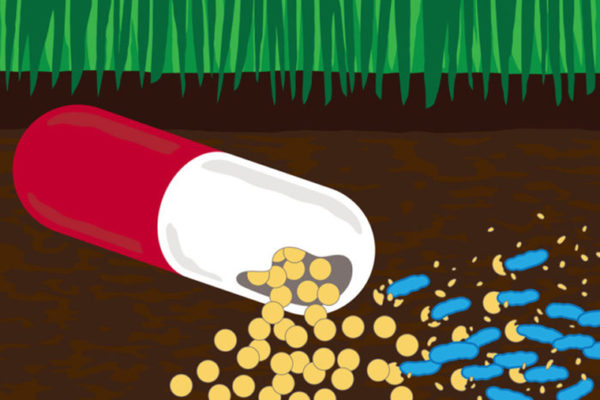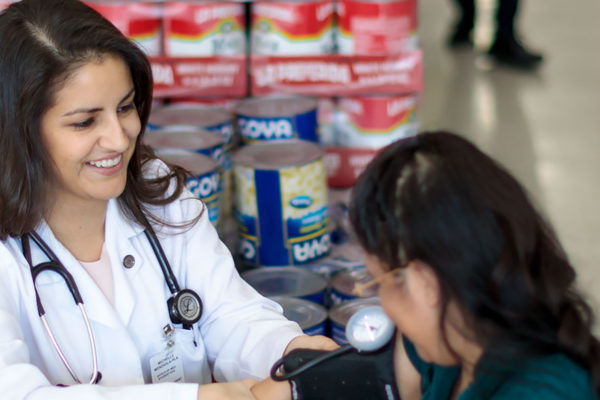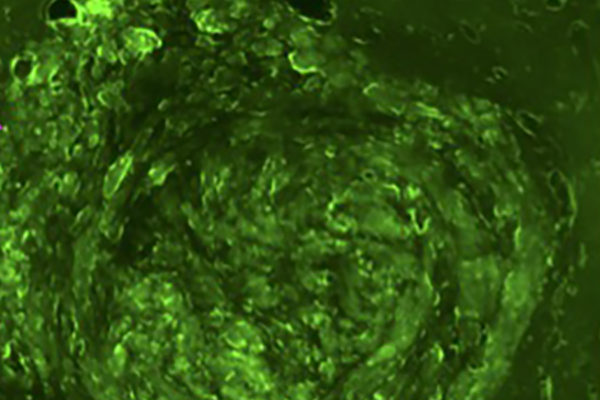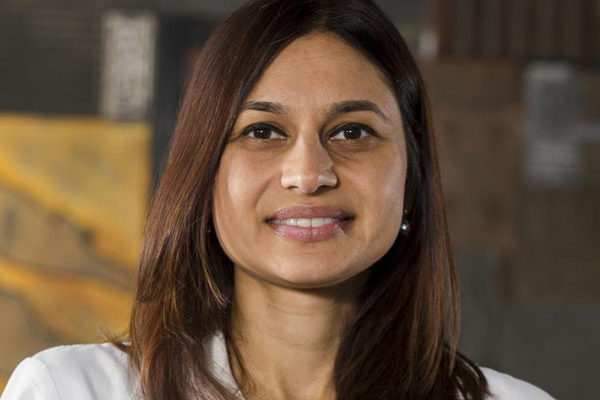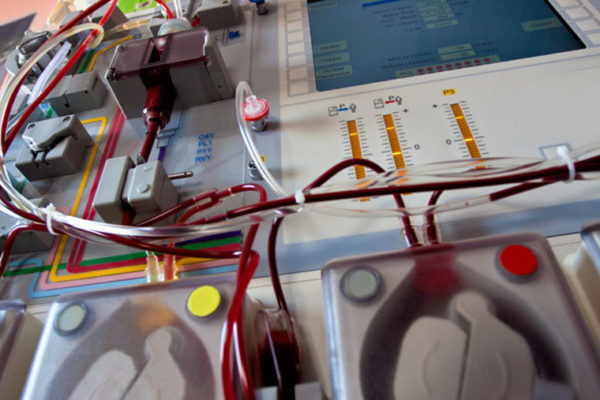Vedantham-led team honored for clinical research
Suresh Vedantham, MD, professor of radiology at Mallinckrodt Institute of Radiology at Washington University School of Medicine in St. Louis, and a team of clinical trial investigators have been recognized with a 2018 Top 10 Clinical Research Achievement Award from the Clinical Research Forum.
$5 million supports innovative breast cancer trial
A $5 million grant will support research at the School of Medicine aimed at improving breast cancer therapies. The research focuses on HER2-positive breast cancer. Ron Bose, MD, PhD, and Cynthia X. Ma, MD, PhD, are leading the effort.
How a light touch can spur severe itching
Researchers at the School of Medicine have discovered, in mice, why a touch can cause such severe itching and, in the process, identified some possible therapeutic targets.
Goodwin to lead national group of cancer center communicators, marketers
Jim Goodwin, associate director of strategic communication at Siteman Cancer Center at Barnes-Jewish Hospital and Washington University School of Medicine in St. Louis, has been named chair of the Public Affairs & Marketing Network, a group of communications and marketing professionals at 70 U.S. cancer centers.
Bacteria’s appetite may be key to cleaning up antibiotic contamination
Antibiotics in the environment contribute to drug resistance. But researchers at the School of Medicine have figured out how some soil bacteria turn the drugs into food. The information could lead to new ways to clean up antibiotic-contaminated soil and waterways.
Class Acts: Helping to end health disparities
From helping residents of disadvantaged neighborhoods manage chronic conditions such as diabetes and high blood pressure, to returning to her hometown of San Juan, Puerto Rico, in the aftermath of Hurricane Maria, Michelle Mendiola Plá has demonstrated a passion for service and commitment to health equity.
Rates of autism continue to rise, new data indicate
New statistics show rates of autism have continued to increase. However, they have increased only modestly, suggesting there may be a leveling off. Still, researchers found that many children aren’t getting diagnosed until age 4 or older. The new findings stem from research involving the 11-center Autism and Developmental Disabilities Monitoring Network, which includes Washington University School of Medicine in St. Louis.
Noninvasive brain tumor biopsy on the horizon
Taking a biopsy of a brain tumor is a complicated and invasive surgical process, but a team of researchers at Washington University in St. Louis is developing a way that allows them to detect tumor biomarkers through a simple blood test.
Patel recognized in Business Journal’s ’40 Under 40′
Rupa Patel, MD, assistant professor of medicine at Washington University School of Medicine in St. Louis, was selected from more than 500 nominations as one of the St. Louis Business Journal’s “40 Under 40” honorees for 2018.
Experimental arthritis drug prevents stem cell transplant complication
An investigational drug in clinical trials for rheumatoid arthritis prevents a common, life-threatening side effect of stem cell transplants, finds new School of Medicine research. Studying mice, the researchers found the drug prevented what’s known as graft-versus-host disease.
View More Stories
